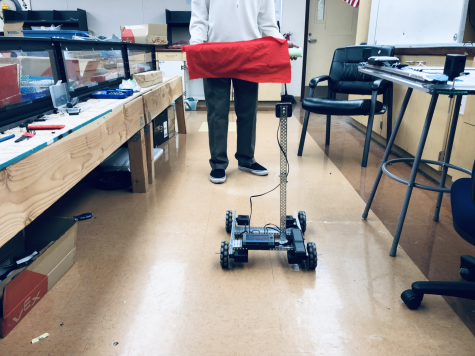OPINION: Senioritis, an excuse for laziness or a real problem?
Photo Courtesy: Madison Bonadurer
During senior year, it can feel like your class work and home work is pilling up. This can cause a buildup of stress but “I want to enjoy my senior year as much as possible” says Julianna Diaz.
January 13, 2022
With college acceptance letters starting to arrive and graduation only a couple of months away, many seniors are starting to feel senioritis set in. This “disorder” is mostly known for making students feel anxious which causes a decrease in energy as the school year comes to a close. Each year as students use the term to explain their lowered efforts, many students and teachers wonder if it is just an excuse for laziness.
Teachers warn students each year about how senioritis can affect their lives. Despite students receiving college acceptances and scholarships, many schools will revoke these benefits if the students slack off too hard at the end of the year. Students may also struggle more with classes if they do not complete assignments during senior year.
Some people believe that senioritis does not exist and as students get closer to graduation and finish college applications, they start to care less about school and become lazy, “I’m usually the type where if I get stressed or anxious, I get lazy” says Julianna Diaz, an alumnus of Chino Hills High School. This carefree attitude can lead to them missing events and not doing assignments.
Students who do feel the effects of senioritis describe it closer to anxiety or restlessness as the stress of graduation sets in. Many people believe that senioritis is actually the stress building up from the additional responsibilities that seniors are taking on, such as jobs and college applications. These responsibilities can lead to students feeling too stressed to go to events and do their school work, “I didn’t want to think of the thought of graduation too much so I tried to distract myself by being out a lot” says Julianna.
The higher levels of stress students feel in their senior year can also increase mental health issues such as anxiety and depression. The common stigma that surrounds mental health is sometimes attributed to why students may feel more comfortable describing their feelings with a word such as senioritis. The word was made to describe the feelings of students and has evolved over time to be more encompassing of feelings that students may feel uncomfortable saying in a more direct way.
Despite the term having a debated status as a condition, the effects can still be seen as students lose interest in school events and stop putting as much effort into their classwork. This loss of focus negatively affects the students’ grades and college experience, as the student falls behind on important subjects and their work ethic worsens. This makes senioritis something that students should still learn to heal from as the year progresses.
Even if senioritis is not seen as a diagnosed condition, its effects can still be felt by many students every year. With senioritis setting in for students all over the school, it is important for students to be aware of how it can affect their future and to learn ways that they can take care of their mental health as the stress of the real world starts to grow larger and larger. The responsibility students feel during their senior year can pile up for many students, but each year they prove that they can handle it as they wear their cap and gown at graduation.











